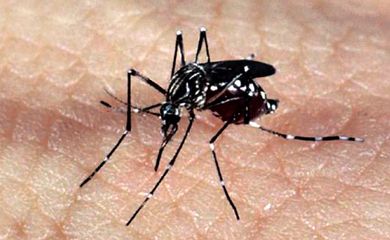Instituto Butantan enters phase of dengue vaccine trials in Brazil

Two other Brazilian cities—Manaus and Boa Vista, in the Brazilian Amazon—enter next week the third and final phase of dengue vaccine trials that began in February in Instituto Butantan—important biomedical research center in São Paulo city. In 13 cities of Brazil's five regions, 17,000 volunteers will participate in the trials at this phase.

The last phase of the research will aim at measuring the drug's efficacy. Of volunteers' total, two thirds will receive the vaccine and one third will receive the placebo, a substance given to them as if it was the vaccine but without its effects.
According to the director of Butantan Instituto, Jorge Kalil, people who volunteer in the vaccine trials need to be healthy, to be divided among three age groups: from 2 to 6 years, from 7 to 17 and from 18 to 59. They will be accompanied by the research centers' medical staff for next five years to examine the duration of action of the vaccine.
"In this last phase, 17,000 volunteers from the three age groups will receive the vaccine. The study will use the vaccine administration method called randomized double-blind placebo-controlled trial, i.e. neither the care provider, nor the volunteer will know whether they are receiving the vaccine or the placebo. There is an observation committee that knows who received the placebo or the vaccine and they will examine, by statistical calculations, the vaccine's efficiency and its percentage. We expect the protection rate to be between 80% and 90%," Kalil explained.
According to him, the last phase of trials can last around a year. "We will accompany the people who receive the vaccine for five years, because we want to know if after this period they will continue to be protected against dengue and if they will need a booster dose in the future," he said.
The institute estimates that the vaccine will available for registration by 2018. "This vaccine is important for everyone. There are 3 billion people in the world facing the risk of contracting dengue and, only in Brazil, there are more than 3 million cases of the disease every year, with relatively high mortality," said the director.
The vaccine has the potential for protecting against four dengue viruses with a single dose. It is produced with live virus that have been genetically attenuated. Live virus provoke a stronger immune response, but since they are attenuated, they have no potential to cause the disease.
According to Kalil, the previous phases of trials have shown good results produced by the vaccine. "When we examine the level of neutralizing antibodies—those that do not let the virus proliferate—produced, we see that the vaccine induced a very strong response against all four serotypes. In addition to antibodies, the vaccine induces a cellular response, which means that it induces the so-called T lymphocytes (T cells) to defend themselves from the virus, and they are very important supporting cells for the antiviral response," he mentioned.
Translated by Amarílis Anchieta
Fonte: Instituto Butantan enters phase of dengue vaccine trials in Brazil





